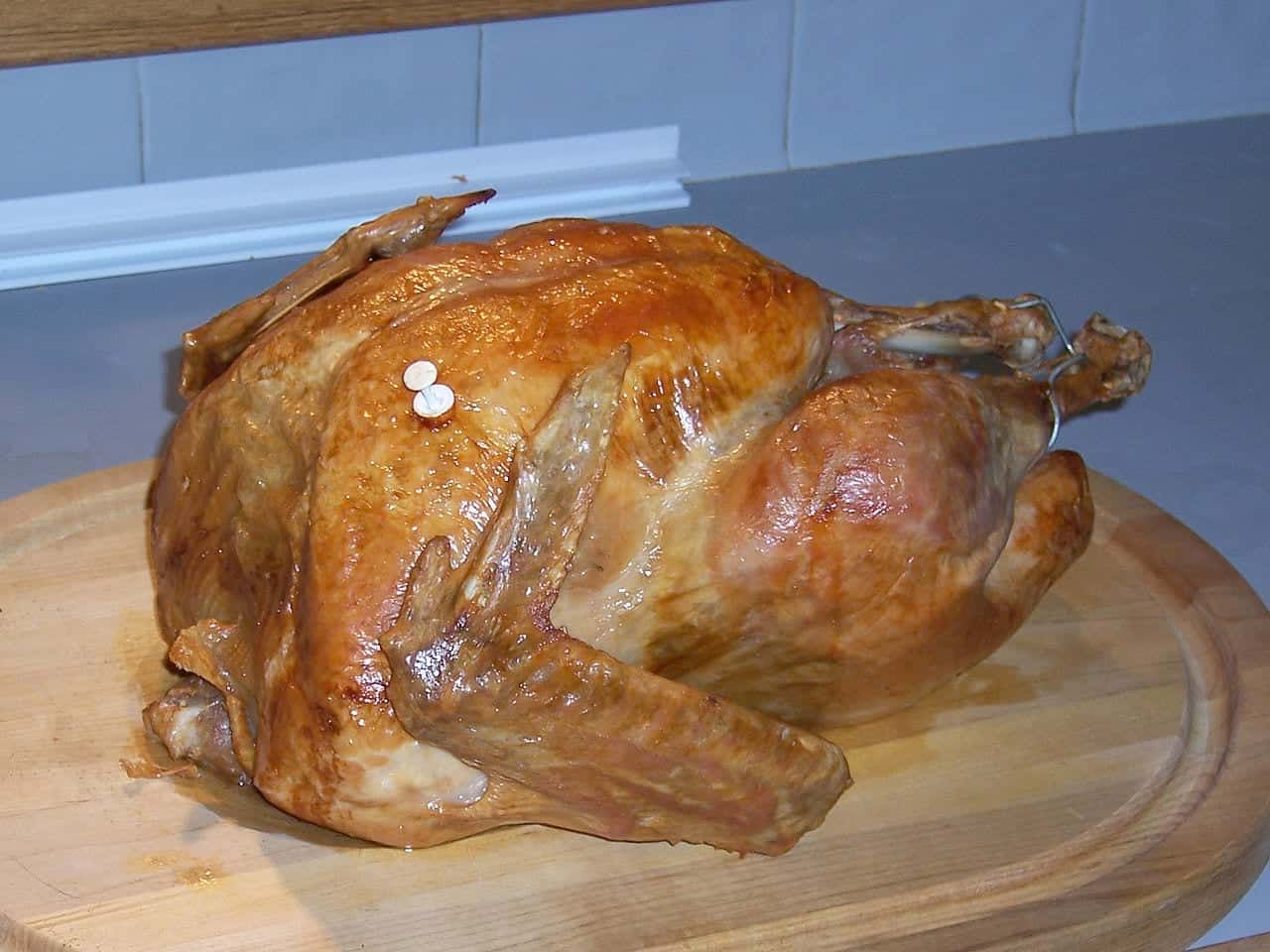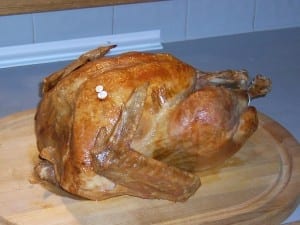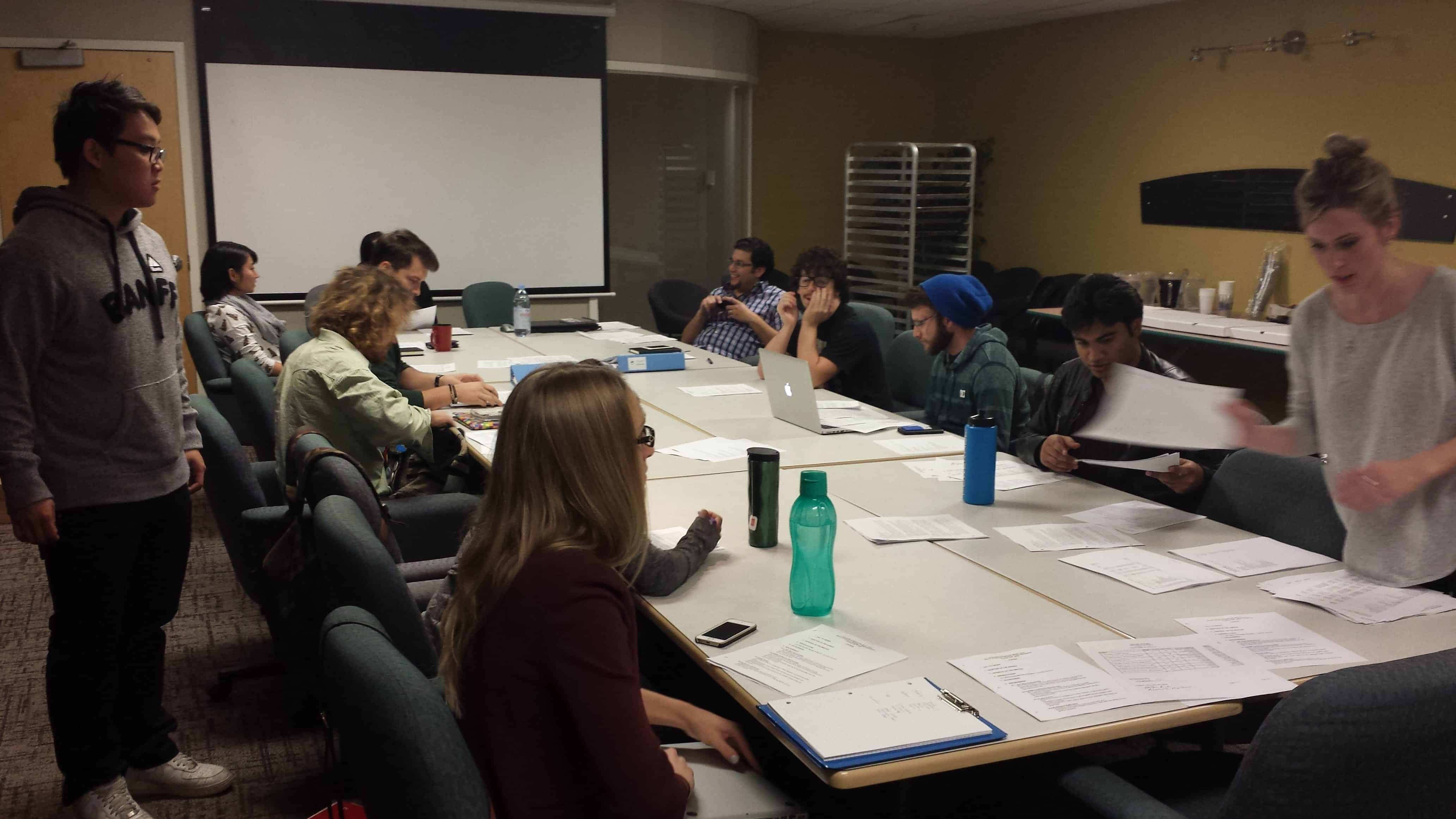Does turkey make you sleepy?

A look back on the Thanksgiving myth
Author: Liam Fitz-Gerald
Thanksgiving has passed, and we’ve all woken up from our turkey comas. So, let’s take a little look back: does turkey really make us sleepy? Contributor Liam Fitz-Gerald gives us the following insight on this popular turkey myth.
For many Canadians, Thanksgiving means many things. For students it means a brief escape from the grind of torturous midterms (usually coupled with an “oh shit, I actually better study next time”), while for families it presents an opportunity to come together and be appreciative for each other’s presence (usually followed by a sigh of relief when it’s all over). For several people though, it’s a time to sit around the table and eat turkey! After heaps and heaps of turkey, potatoes, cranberry sauce, dressing, gravy, pumpkin pie, and whatever else people eat, there’s usually a slouch backward, followed by an unbuckling belt with the following words coming forth: “I think I need a nap.”
Yes, turkey is notorious for putting the sleepy in those who devour it. The question is does it really make us sleepy?
Across the collective imagination of North America exists the idea that turkey puts one into a coma inducing sleep because of tryptophan: an amino acid that the body uses to create sleep hormones such as melatonin and serotonin. Tryptophan travels to the brain, and from there the body begins the production of sleep hormones, causing those lovely feelings of after dinner heavy eyes. As tryptophan is not produced naturally by the body, it must obtain it from foods. Since turkey is one of these foods, this seems like an open and shut case right? Turkey’s willing victims consume the food, the tryptophan is used to produce melatonin and serotonin, so therefore, turkey causes sleepiness.
Well that’s not entirely the case.
It turns out, according to neurologist and blogger Cara Santa Maria, that turkey doesn’t have overwhelmingly high concentrations of tryptophan. In fact, foods such as codfish, spinach, many cheeses, and beef contain just as much or even higher amounts of the amino acid. That’s right; turkey is no more likely to knock you out than a Big Mac.
Wait a minute. Why am I still sleepy after eating turkey?
As NBC points out, it’s the sheer amount of food that many people eat during Thanksgiving dinner that’s responsible for that sleepy feeling. To reach the brain, tryptophan must frequently compete with other amino acids, which are filtered by the brain blood barrier. However, large amounts of carbohydrates (potatoes and stuffing) are typically consumed during a Thanksgiving dinner. This causes the body to create insulin, which removes several amino acids from the bloodstream. One of the only acids not removed by insulin is tryptophan, which is free to proceed to the brain and begin producing the infamous sleep hormones.
Plus, as Santa Maria points out, many people are also drinking alcohol and are typically more relaxed during the holiday (it should be pointed out that even though she’s referring to American Thanksgiving, we can apply this to Canadian Thanksgiving as both are holidays, usually spent with family and revolving around the great bird of turkey), so there are many reasons besides tryptophan for putting turkey eaters to sleep.
So, why does the myth persist?
According to Santa Maria, people continue to gorge themselves (3000+ calories) on Thanksgiving dinner and as a result don’t reflect on why they get tired or investigate the matter further. To them it’s sort of a tradition; eat and then get sleepy. She notes that people typically eat as much for one meal as they would need for two days. It should also be noted that it’s not exclusively turkey dinners that make you drowsy after dinner. Any large meal can make you feel very sleepy afterward.
Plus, our culture has quite the collective narrative, which isn’t easy to shake off. It doesn’t help that shows like Seinfeld which had feeding turkey to get somebody to sleep as a plot device, continue to spread the myth.
So it looks like there’s a vicious cycle at foot. Every year, people will overeat turkey, feel tired afterward, and then blame the turkey. Rest assured medical experts and scientists, you’ll be debunking the same myth year after year.










